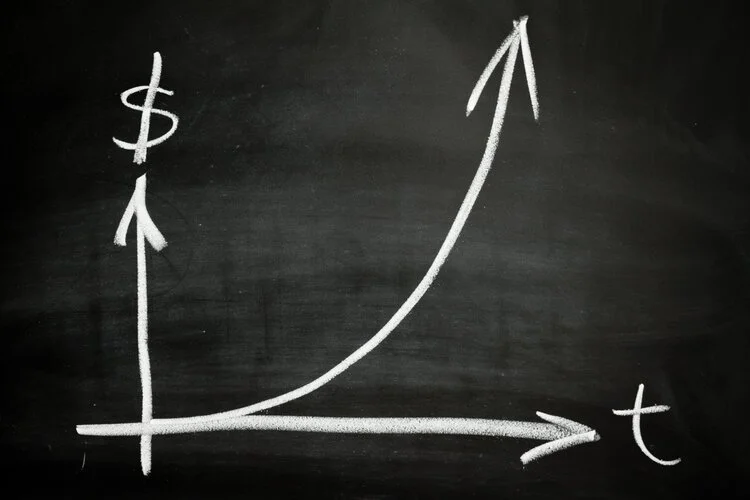The Cost of Not Saving Early
"Save early and save often"
You have probably heard this common phrase (perhaps from a financial advisor) regarding the importance of saving for your future. While a great piece of advice, and one that I use often, it doesn't fully capture the impact of saving early.
Today I want to put some realistic dollar figures to this.
I want to walk through a quick, simple example of how saving early (or not saving early) could mean the difference of literally millions of dollars later in your life.
ASSUMPTIONS
Since 1980, the S&P 500 has earned an average of approximately 11.5% per year. That is a geometric average, not an annual average. The difference between the two is important, but a topic for a different day. You can learn more here if you're interested.
For the purposes of this example, let's assume that the S&P 500 will perform similarly to the last 40 years. Of course, past performance doesn't reflect future performance but for the sake of calculating long-term stock market performance, that's what we'll assume.
And we're going to use ACTUAL stock market performance over the past 40 years. As opposed to just using 11.5% every year, we'll use year-to-year performance from 1980 to 2020, which factors in the ups and downs of the stock market (including the 2000 and 2008 crashes).
Also, as I've mentioned in the past, your risk tolerance changes over time so it's unlikely that you'd be investing in 100% Equities (e.g. S&P 500) until age 70, but to keep it simple for this example, that's what we're assuming.
EXAMPLE
In this example, we are looking at the savings schedule of two people over the course of 40 years. We'll call the first guy Harry and the second guy Ron. Both are 30 years old right now.
Harry saves diligently over the next 10 years. He puts away $500 per month into his IRA between age 30 and 40. All of his savings are invested in the S&P 500, which continues to earn (on average) 11.5% per year. But at age 40, he encounters some life difficulties and is unable to save anymore. So he never saves again after age 40. He just lets his money grow for the next 30 years until he starts using the money at retirement at age 70.
At the end of those 10 years, Harry had accumulated nearly $129,000. However, even though he doesn't add to that stockpile anymore, 30 years later, when he's 70, that amount has grown to nearly $2.7 MILLION!
That's quite a nest egg for only contributing to it for 10 years.
Ron, on the other hand, new that retirement was a long way off. So while Harry was saving in those first 10 years, Ron was not. So at age 40, when Harry had finished saving, Ron decided to start saving. But he had a plan: to save $500 for month for the next 30 years! Surely that will be more than Harry was able to accumulate; after all, Harry only saved for 10 years and Ron will be saving for a whopping 30 years.
Similar to Harry, Ron invested the money in the S&P 500, earning (on average) 11.5% per year.
Over those 30 years, Ron is diligent about saving and doesn't miss a single month. Thirty years later, when he turns 70, those savings have accumulated to a mere $1.0 million, roughly one-third of what Harry had accumulated!
How can this be?
This is the power of compounding. And it's why saving early is SO important.
The amount of money saved in the first 10 years has more of an impact on your final nest egg than the following 30 years. In fact, in order to make up for the lack of savings in the first 10 years, Ron would have had to more than double his monthly savings for those 30 years!
Harry was able to accumulate almost triple what Ron was, even though he only saved for one-third of the time!
To give you another idea for how important those early years are, if Harry had waited even just another 5 years before he started saving (so starting at age 35 instead of age 30), he would be only at $1.2 million at age 70 instead of $2.7 million!
Simply saving $30,000 in those early 5 years translated to an ADDITIONAL $1.5 million at age 70.
Compounding is truly a beautiful thing.
This is why "save early" is probably one of the most important pieces of financial advice you will ever receive. Even just waiting a few years to start saving for retirement until you get that bigger house or fancier car can mean the difference of millions of dollars down the road. And you can't turn back the hand of time. The longer you wait to start saving, the much more you're going to have to put away.
So ask yourself, is the short-term sacrifice worth the long-term reward?
Anytime you forgo savings to make an unnecessary purchase, is it worth having to double your savings efforts for the rest of your life?
Is the short-term sacrifice of saving today worth the long-term reward of financial peace?
When you think about it in those terms, it should make the decision pretty easy.
Note: For those of you who want to audit my calculations, you can download the spreadsheet here.
FYI, if you missed my last article on "Why it feels good to buy things" go check that out, as I think it will be a good follow-up to this article, and may help you develop some better saving habits.

